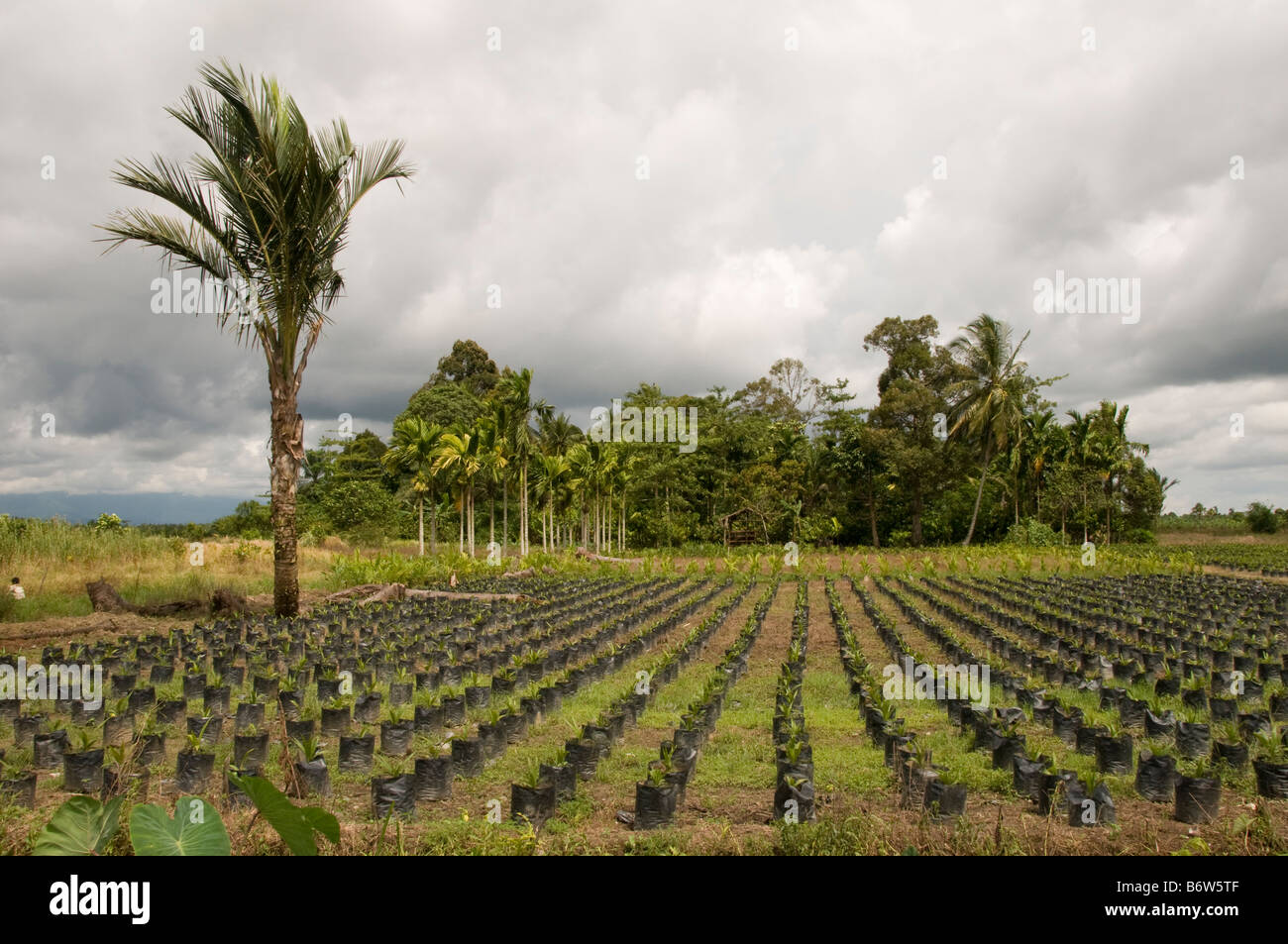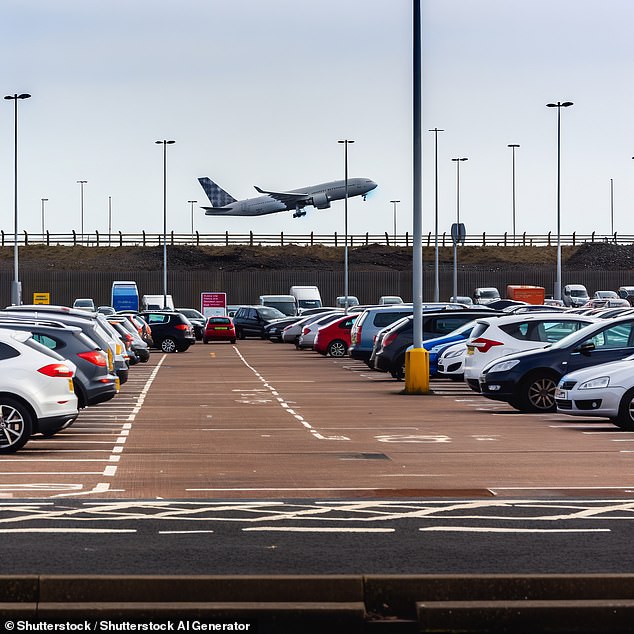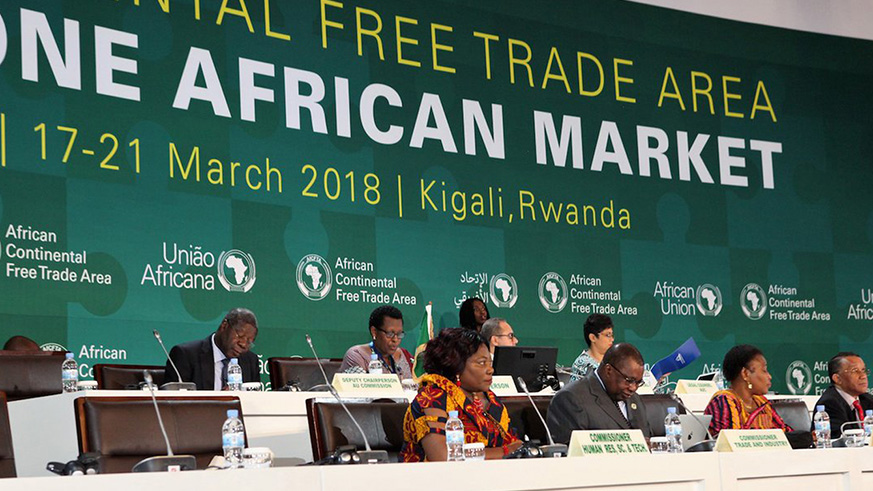
By Kwame Asante (Director of Executive, Structured Solutions Development, Cash, Standard Chartered Bank)
The African Growth and Opportunity Act (AGOA), a significant U.S. trade program introduced in 2000, is now encountering an uncertain path as renewal talks are delayed in Washington. Should it not be extended, this would signify the conclusion of a 20-year preferential trade arrangement that has influenced economic ties between Africa and the U.S., especially within industries like textiles, farming, and light industry.
The greatest effect would be experienced by countries such as Kenya, South Africa, Ghana, and Nigeria, which have utilized AGOA to expand their exports and draw in investments.
The AGOA offers duty-free entry into the U.S. market for more than 6,500 items from 35 qualifying sub-Saharan African nations. It has encouraged export-driven growth, employment opportunities, and industrial development, particularly within labor-heavy sectors.
Upcoming Turbulence: What's on the Line
In Kenya, the clothing industry has received the main advantage from AGOA, with more than 90% of fabric exports heading to the United States. The initiative provides around 58,000 direct employment opportunities, mostly occupied by women in export processing zones. Without AGOA, these companies are at risk due to increasing tariffs and reduced competitiveness.
South Africa, home to one of Africa's most varied economies, has leveraged AGOA benefits to boost exports of agricultural products like citrus fruits and wine, along with vehicles and manufacturing items. Losing AGOA would reduce export revenues, limit employment opportunities, and interfere with supply networks that aid the larger Southern African Development Community (SADC) region.
Ghana and Nigeria have also utilized AGOA to boost non-traditional exports. Ghana's clothing exports and agricultural products like yams, pineapples, and cocoa-related items have secured a steady market through the program. Nigeria, which previously depended heavily on oil exports under AGOA, has made progress in developing its light manufacturing and food processing industries. These achievements are now in jeopardy.
In addition to the figures, ending AGOA would mark a step back in Africa's efforts to develop its industries, generate employment, and achieve inclusive economic growth. It would also hinder progress in establishing robust supply chains throughout the continent.
AfCFTA: A Key Shift for Strength
The African Continental Free Trade Area (AfCFTA) presents a different approach, moving the focus from external preferences towards creating a strong, unified African market. By bringing together 54 nations with a total population of 1.4 billion and a GDP of $3.4 trillion, AfCFTA seeks to increase trade within Africa, which currently stands below 17%, in contrast to over 60% in Europe and Asia.
At its foundation, AfCFTA aims to strengthen regional value chains. Instead of exporting raw resources, African nations can work together to create final products, boost industrial strength, and increase job opportunities. Important industries like textiles, processed foods, automotive parts, and medicines, which once gained advantages from AGOA, can now be focused on meeting rising demand within Africa.
Furthermore, AfCFTA offers a structure for Africa to engage with international partners from a stronger stance. It highlights the continent's goal to shape its trade policies around common prosperity, self-reliance, and coordinated strategies.
Progress and Priorities
The AfCFTA rollout has achieved considerable progress:
- All 54 nations belonging to the African Union have signed the accord, with 49 having approved it.
- The Guided Trade Initiative, introduced in 2022, is facilitating commerce in accordance with AfCFTA regulations, showing encouraging initial outcomes.
- Four key industries — Agro-processing, Pharmaceuticals, Automotives, and Transportation & Logistics — have been identified for regional value chain development.
- Agreements concerning Products and Services, Investment, Competition Rules, Intellectual Property, and online trade have been discussed and approved.
- Tariff schedules and origin rules now apply to 92% of goods exchanged. Textile and automotive regulations are almost finalized.
- The Pan-African Payment and Settlement System (PAPSS) is now active, linking more than 20 central banks and 160 commercial banks to facilitate transactions in local currencies.
- Seven countries now allow African citizens to enter without a visa, while 24 provide electronic visas.
- An AfCFTA Adjustment Fund, which includes a Base Fund (for technical support), General Fund (for trade infrastructure), and Credit Fund (for enhancing the capabilities of SMEs and the private sector), has been introduced to assist nations in transitioning and investing in trade-supporting systems.
These advancements go beyond mere policy successes, marking essential progress toward a new regional economic system.
To quicken progress, officials should concentrate on:
- Completing the alignment of customs procedures, digital trade frameworks, and product regulations.
- Funding developments including ports, transportation routes, and distribution centers.
- Allowing small and medium-sized enterprises, which constitute more than 80% of African businesses, to enter formal markets, obtain financial support, and meet certification requirements through the AfCFTA.
Implications for African Businesses
The AfCFTA offers a significant chance for businesses to thrive. It provides entry into a market that is becoming more open across 54 nations, presenting larger opportunities and fresh consumer groups. Lower tariffs, easier origin rules, and improved transportation networks make trading between countries more practical and less hazardous.
To benefit, companies must:
- Sign up with the national AfCFTA secretariats.
- Adhere to the certification and origin regulations.
- Place themselves in a favorable position to engage with local supply networks.
Pioneers, especially within manufacturing, transportation, and agricultural processing, are positioned to achieve a competitive edge as the trade environment evolves.
How We Can Help
With a 150-year history on the continent, Standard Chartered is actively helping clients manage and gain advantages from AfCFTA. We offer:
- Availability of funding and online commerce and cash systems.
- Policy recommendations and strategic guidance on AfCFTA; and
- Services designed to assist companies in expanding across regions.
Our objective is to link clients with emerging growth areas, facilitate the movement of capital, and promote equitable trade throughout Africa.
Final Thoughts: Africa at a Critical Turning Point
The possible termination of AGOA signifies a crucial turning point in the economic ties between Africa and the U.S. However, instead of perceiving it as a disadvantage, it should be regarded as an opportunity for autonomy. The AfCFTA offers a framework to shape a new story, focused on growth driven by African initiatives, trade within the continent, and the development of regional value chains and integration.
The necessary policies and tools have been established. The goal is evident. What is left is unified action. Government officials, companies, and development allies need to collaborate to ensure AfCFTA becomes more than a trade deal, but a powerful driver of growth across the continent.
Africa is entering a new era of trade, this time according to its own conditions.
Provided by SyndiGate Media Inc.Syndigate.info).





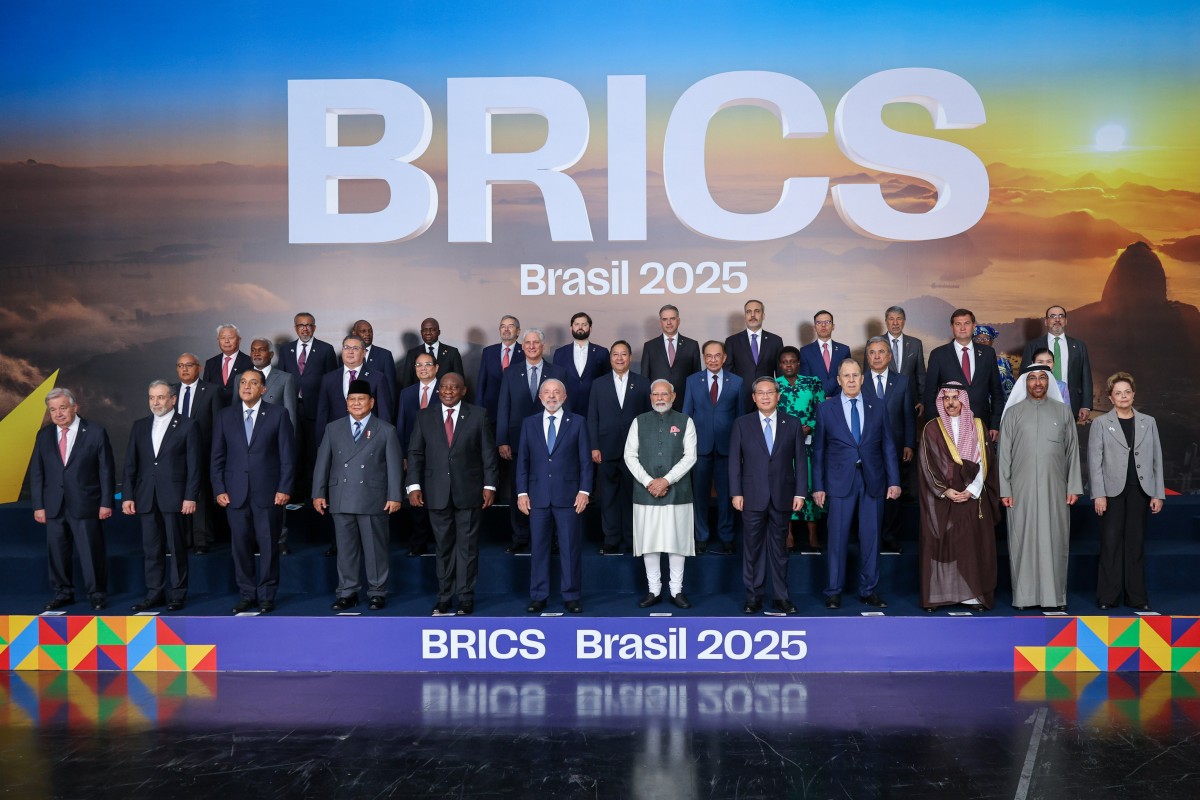


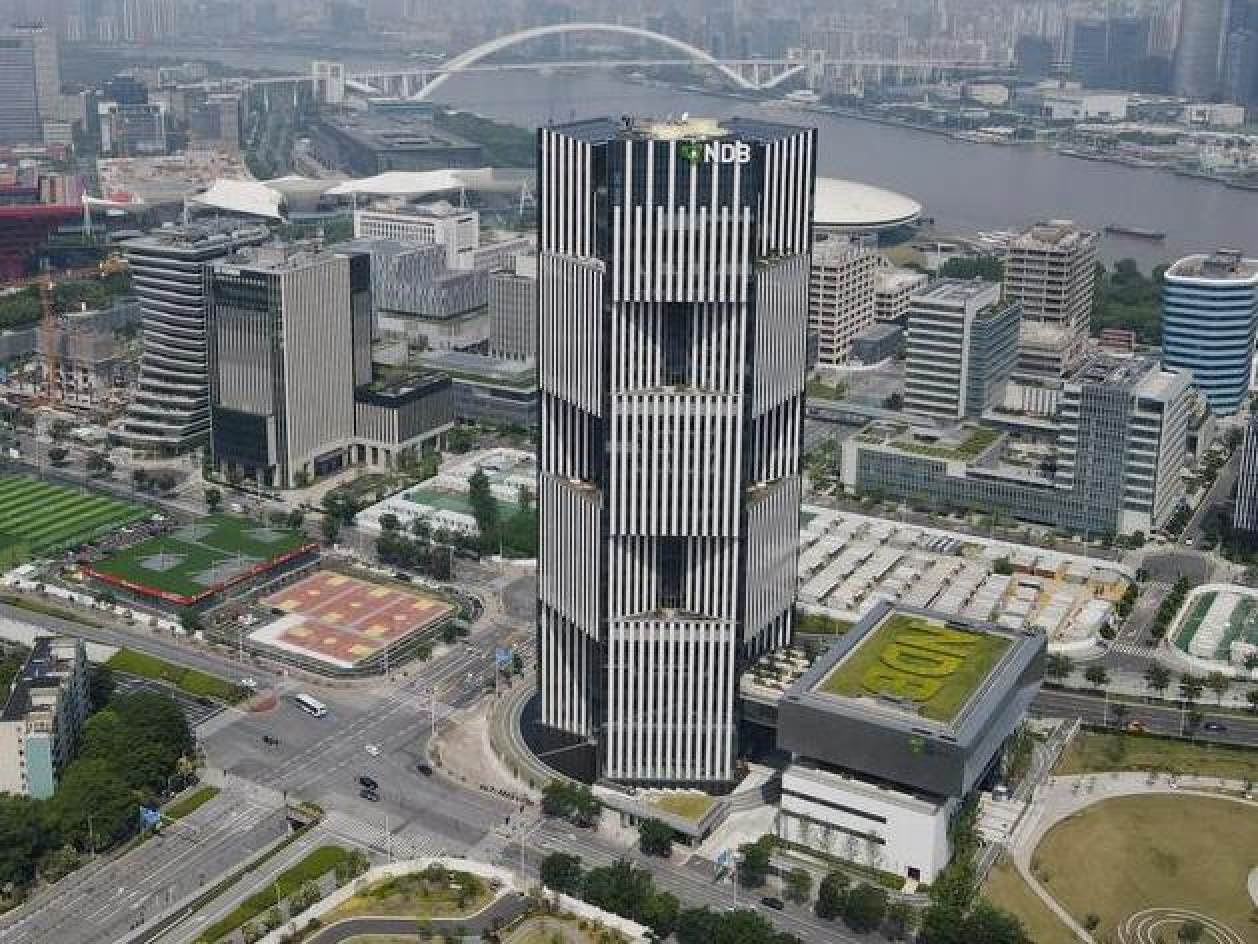
 Ideas often emerge to solve problems. What were the initial challenges you faced, and what opportunity did you see in the market? I started building NALA in 2017. It wasn't an easy path; I built, failed, rebuilt, and failed again. In April 2018, we launched a USSD-based app to help users manage mobile money more efficiently. It didn’t perform well. However, we reached number one on the Play Store in Tanzania, and then we received a cease and desist letter from the country's largest telecom operator, accusing us of stealing customer PINs. Around the same time, I was called in by the central bank to explain how our technology worked. It was a frustrating moment, especially as a young innovator, around 24 or 25 years old, trying to solve real issues. How did you manage to shift from a mobile money management app to international remittances? Pivoting was challenging; no one likes to fail. Moving from domestic payments to cross-border remittances was a tough decision, especially since I had never lived in the UK before. But then the COVID-19 pandemic hit, and we began seeing a global shift: more people preferred digital channels for sending money. That’s when I noticed two important trends. First, population growth in Africa and Asia was accelerating. Africa has about 1.2 billion people and is expected to reach 2.5 billion by 2050, with the world's largest workforce. Asia showed similar patterns. Second, with population growth comes increased migration. Every year, approximately 1.6 million Indians and 1.1 million Africans leave their home countries in search of opportunities abroad. And when people migrate, money follows, along with trade. We realized there was a massive opportunity to build a financial infrastructure that serves this global movement of people and money. Today, NALA is one of the largest remittance companies in Africa. We handle over $1 billion in annual transfers to Africa and Asia. More importantly, we are contributing meaningfully to local economies. There have been conflicting reports regarding Nala's decision not to base operations in Tanzania. What's the real story? People say what they want because it sells. It's frustrating to see misinformation, especially when no one asks for my side. I did apply for a license in Tanzania—it just took longer than in other markets. When you raise foreign capital, investors expect results. We got approval faster in Kenya with a letter of no objection from the Central Bank, so we launched there first. That's just business. Kenya also has stronger tech talent. Today, we do have an office in Tanzania and local employees. But Nala doesn't have a single headquarters. If we go by revenue, the U.S. would be our HQ. By headcount, it's the UK. By impact, it's Africa. We operate in 11 countries in Africa, 19 in Europe and North America, and four in Asia. We have an office in Nairobi for several reasons. One is that the UK is where we started, and the first country that gave us permission to send money to was Kenya. While I was waiting for approval from Tanzania's central bank, we received our license in Kenya, so that's where we had to build our support base, as the number of customers was growing rapidly. It took about a year and a half to get regulatory approval in Tanzania, but only two to three months in Kenya. As a tech company, time is your enemy, and speed wins. Another reason we built a customer support base in Kenya is language. In Tanzania, English proficiency isn't as widespread as it is in Kenya, so hiring staff with the required level of English would have been much more expensive. My decision was based on market dynamics, customer growth, and language efficiency. Some government representatives have claimed to be in talks with you to bring Nala home. What's your response? A lot of them are lying. I hear claims being made in Parliament by people I've never even met. If someone really wants to solve problems, they can just call me. Let's solve it together. You entered a remittance space dominated by companies such as Western Union and MoneyGram. What gave you the confidence to take them on? I was told not to do this business many times. I've got emails and WhatsApp messages warning me I'd fail. But I had a team that believed in the vision. We decided to try. If it worked, great. If it didn't, at least we tried. Too many people just talk and never launch. Truth is, we could still fail. I tell my team all the time: we're still a small company with a long way to go. What gave you the conviction that this could work? I pray. But full conviction is impossible; you can always be wrong. Indecisiveness, however, is too expensive. I ask God for wisdom, strength, and understanding. Then we give it our best. As long as you know you tried your best, you're already closer to success. Nala is known for blending local market expertise with global experience. What does that look like practically? Talent and opportunities are everywhere. What gets interesting is when you bring together someone who's worked in mobile money in East Africa, someone from digital banking in London, and someone from Singapore. When you put them in the same room, something magical happens. It stimulates creativity and problem-solving in a way that's really customer-focused. That's what excites me about how we're building Nala. Let's talk about the talent gap in tech and financial services across Africa. How much of a challenge is this for your business, and is the situation improving? I don't think we take software engineering or computer science seriously enough in Tanzania. If I were in the Ministry of Education, I'd make it mandatory in the school syllabus from an early age. Not everyone will love it, and that's okay, but we need to stimulate minds early on. Also, we need to create policies that bring talent into Tanzania. Look at the UK's Tech Nation visa or what Dubai is doing with digital nomad visas. They bring in smart people who raise the average quality of local talent. Tanzania needs to move in that direction if we want to become competitive in tech. Africa continues to lose tech talent to Western markets that offer higher pay. How do you respond to that dynamic? I think more people should leave Africa for better opportunities abroad. We don't have enough local jobs. Take Kenya, for example. Its biggest export is tea, around $1.2 billion in 2023. But Kenyan diaspora sent back $4 billion in remittances in the same year. So is talent Kenya's greatest export? Possibly. We should view migration as an opportunity, not a loss. Doesn't this migration risk widening the local talent gap even further? Not necessarily. You can solve it in other ways. Bring in global talent with digital nomad visas. Offer tax incentives. These people will spend locally and raise the level of discussion and skill-sharing. If they live in Tanzania, they'll go to local hackathons, tech meetups, and share knowledge. That's how ecosystems grow. What is your view on Tanzania's updated foreign policy and the introduction of special status for the diaspora? I know it's a sensitive topic, but I believe Tanzania should enable dual citizenship. I've seen the impact of this across the markets we work in; Uganda has dual citizenship, so does Kenya. It enables more trade and investment back home. Special status is a step forward, but the real question is: how do we get Tanzanians abroad to build more businesses at home? From January to June this year, African startups raised around $1 billion in VC funding, but Tanzania didn't feature prominently. Why are we missing from that narrative, and what needs to change? There are several systemic issues. Do we have scaled tech companies? Do our policies support founders? Do we have an ecosystem that helps startups grow? Most people blame regulation, but it's more than that. One big issue is language, English. Most software is in English, but we teach it too late in our public schools. Compare that to Kenya, where English is introduced much earlier. Language builds trust. If a Tanzanian founder struggles to express themselves during a pitch, it affects investor confidence. That needs to be addressed at a national level. There's been concern about startup founders losing equity with every round of funding. What's your take? Raising debt is tough, and people have lost a lot of money trying. At NALA, all the fundraising we've done so far has been equity-based, which means my shareholding has reduced with each round. Today, I'm no longer the majority shareholder. That said, we're considering our first debt round this year. Are you worried about losing control of the company? There's always a risk, not just in Africa, but globally, and not just in tech, but in every kind of business. It's tough. I've seen friends who spent 10 to 15 years building companies and ended up with almost nothing. That's a reality we face. The key is alignment, with your board, with your team. Everyone must be on the same page. How difficult is it for startups in Africa to raise capital? It's very difficult. Raising money isn't the reward. When we raised $40 million last year, one of my board members told me, "Benji, the chef doesn't celebrate getting ingredients. What matters is what you cook." Raising capital in Africa is tough. Many investors associate the continent with instability, war, and disease. You have to constantly work to change that perception and build trust. When you take investor money, it's not charity; it comes with pressure and expectations. Every boss has a boss, and I do too. Honestly, my hardest market in Asia was easierSyndigate.info).
Ideas often emerge to solve problems. What were the initial challenges you faced, and what opportunity did you see in the market? I started building NALA in 2017. It wasn't an easy path; I built, failed, rebuilt, and failed again. In April 2018, we launched a USSD-based app to help users manage mobile money more efficiently. It didn’t perform well. However, we reached number one on the Play Store in Tanzania, and then we received a cease and desist letter from the country's largest telecom operator, accusing us of stealing customer PINs. Around the same time, I was called in by the central bank to explain how our technology worked. It was a frustrating moment, especially as a young innovator, around 24 or 25 years old, trying to solve real issues. How did you manage to shift from a mobile money management app to international remittances? Pivoting was challenging; no one likes to fail. Moving from domestic payments to cross-border remittances was a tough decision, especially since I had never lived in the UK before. But then the COVID-19 pandemic hit, and we began seeing a global shift: more people preferred digital channels for sending money. That’s when I noticed two important trends. First, population growth in Africa and Asia was accelerating. Africa has about 1.2 billion people and is expected to reach 2.5 billion by 2050, with the world's largest workforce. Asia showed similar patterns. Second, with population growth comes increased migration. Every year, approximately 1.6 million Indians and 1.1 million Africans leave their home countries in search of opportunities abroad. And when people migrate, money follows, along with trade. We realized there was a massive opportunity to build a financial infrastructure that serves this global movement of people and money. Today, NALA is one of the largest remittance companies in Africa. We handle over $1 billion in annual transfers to Africa and Asia. More importantly, we are contributing meaningfully to local economies. There have been conflicting reports regarding Nala's decision not to base operations in Tanzania. What's the real story? People say what they want because it sells. It's frustrating to see misinformation, especially when no one asks for my side. I did apply for a license in Tanzania—it just took longer than in other markets. When you raise foreign capital, investors expect results. We got approval faster in Kenya with a letter of no objection from the Central Bank, so we launched there first. That's just business. Kenya also has stronger tech talent. Today, we do have an office in Tanzania and local employees. But Nala doesn't have a single headquarters. If we go by revenue, the U.S. would be our HQ. By headcount, it's the UK. By impact, it's Africa. We operate in 11 countries in Africa, 19 in Europe and North America, and four in Asia. We have an office in Nairobi for several reasons. One is that the UK is where we started, and the first country that gave us permission to send money to was Kenya. While I was waiting for approval from Tanzania's central bank, we received our license in Kenya, so that's where we had to build our support base, as the number of customers was growing rapidly. It took about a year and a half to get regulatory approval in Tanzania, but only two to three months in Kenya. As a tech company, time is your enemy, and speed wins. Another reason we built a customer support base in Kenya is language. In Tanzania, English proficiency isn't as widespread as it is in Kenya, so hiring staff with the required level of English would have been much more expensive. My decision was based on market dynamics, customer growth, and language efficiency. Some government representatives have claimed to be in talks with you to bring Nala home. What's your response? A lot of them are lying. I hear claims being made in Parliament by people I've never even met. If someone really wants to solve problems, they can just call me. Let's solve it together. You entered a remittance space dominated by companies such as Western Union and MoneyGram. What gave you the confidence to take them on? I was told not to do this business many times. I've got emails and WhatsApp messages warning me I'd fail. But I had a team that believed in the vision. We decided to try. If it worked, great. If it didn't, at least we tried. Too many people just talk and never launch. Truth is, we could still fail. I tell my team all the time: we're still a small company with a long way to go. What gave you the conviction that this could work? I pray. But full conviction is impossible; you can always be wrong. Indecisiveness, however, is too expensive. I ask God for wisdom, strength, and understanding. Then we give it our best. As long as you know you tried your best, you're already closer to success. Nala is known for blending local market expertise with global experience. What does that look like practically? Talent and opportunities are everywhere. What gets interesting is when you bring together someone who's worked in mobile money in East Africa, someone from digital banking in London, and someone from Singapore. When you put them in the same room, something magical happens. It stimulates creativity and problem-solving in a way that's really customer-focused. That's what excites me about how we're building Nala. Let's talk about the talent gap in tech and financial services across Africa. How much of a challenge is this for your business, and is the situation improving? I don't think we take software engineering or computer science seriously enough in Tanzania. If I were in the Ministry of Education, I'd make it mandatory in the school syllabus from an early age. Not everyone will love it, and that's okay, but we need to stimulate minds early on. Also, we need to create policies that bring talent into Tanzania. Look at the UK's Tech Nation visa or what Dubai is doing with digital nomad visas. They bring in smart people who raise the average quality of local talent. Tanzania needs to move in that direction if we want to become competitive in tech. Africa continues to lose tech talent to Western markets that offer higher pay. How do you respond to that dynamic? I think more people should leave Africa for better opportunities abroad. We don't have enough local jobs. Take Kenya, for example. Its biggest export is tea, around $1.2 billion in 2023. But Kenyan diaspora sent back $4 billion in remittances in the same year. So is talent Kenya's greatest export? Possibly. We should view migration as an opportunity, not a loss. Doesn't this migration risk widening the local talent gap even further? Not necessarily. You can solve it in other ways. Bring in global talent with digital nomad visas. Offer tax incentives. These people will spend locally and raise the level of discussion and skill-sharing. If they live in Tanzania, they'll go to local hackathons, tech meetups, and share knowledge. That's how ecosystems grow. What is your view on Tanzania's updated foreign policy and the introduction of special status for the diaspora? I know it's a sensitive topic, but I believe Tanzania should enable dual citizenship. I've seen the impact of this across the markets we work in; Uganda has dual citizenship, so does Kenya. It enables more trade and investment back home. Special status is a step forward, but the real question is: how do we get Tanzanians abroad to build more businesses at home? From January to June this year, African startups raised around $1 billion in VC funding, but Tanzania didn't feature prominently. Why are we missing from that narrative, and what needs to change? There are several systemic issues. Do we have scaled tech companies? Do our policies support founders? Do we have an ecosystem that helps startups grow? Most people blame regulation, but it's more than that. One big issue is language, English. Most software is in English, but we teach it too late in our public schools. Compare that to Kenya, where English is introduced much earlier. Language builds trust. If a Tanzanian founder struggles to express themselves during a pitch, it affects investor confidence. That needs to be addressed at a national level. There's been concern about startup founders losing equity with every round of funding. What's your take? Raising debt is tough, and people have lost a lot of money trying. At NALA, all the fundraising we've done so far has been equity-based, which means my shareholding has reduced with each round. Today, I'm no longer the majority shareholder. That said, we're considering our first debt round this year. Are you worried about losing control of the company? There's always a risk, not just in Africa, but globally, and not just in tech, but in every kind of business. It's tough. I've seen friends who spent 10 to 15 years building companies and ended up with almost nothing. That's a reality we face. The key is alignment, with your board, with your team. Everyone must be on the same page. How difficult is it for startups in Africa to raise capital? It's very difficult. Raising money isn't the reward. When we raised $40 million last year, one of my board members told me, "Benji, the chef doesn't celebrate getting ingredients. What matters is what you cook." Raising capital in Africa is tough. Many investors associate the continent with instability, war, and disease. You have to constantly work to change that perception and build trust. When you take investor money, it's not charity; it comes with pressure and expectations. Every boss has a boss, and I do too. Honestly, my hardest market in Asia was easierSyndigate.info).